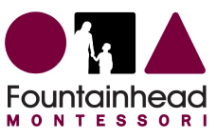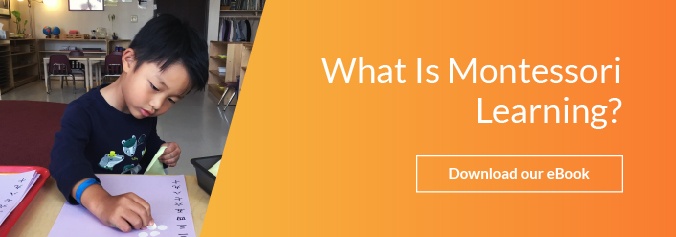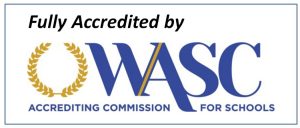As you look at options for your child’s education, one of the most important elements to consider is the underlying philosophy of the program. You need to learn about the core tenets of each educational program you seriously consider for your child. Beyond simply knowing the core tenets, it is also important that you understand why an educational philosophy espouses particular beliefs about education. If you are interested in Montessori education for your child, the core tenets include the beliefs that children have a natural capacity to learn; students should have a say in what and how they learn, and that the goal of education should be to prepare students for success in life.
Children have a natural capacity to learn
Maria Montessori created the Montessori Method using her experience educating children who were considered “unteachable.” The children she worked with did not succeed in the traditional classroom. The fact that these students did not succeed in the traditional classroom led many people to believe that they were simply incapable of learning. Instead of thinking something was wrong with the students, Montessori took a hard look at the way the students were being taught. She believed that all children have a natural capacity to learn if provided with the right type of learning opportunity. Montessori tapped into the natural curiosity of the ‘difficult’ students and found that they were capable of learning. The “unteachable students” success confirmed the belief that children have a natural capacity to learn and cemented it as a core tenet of Montessori education. In the modern Montessori classroom, teachers apply this tenet by creating individualized learning plans based on each student's interests.
Students should have a say in what and how they learn
In Montessori education, students are given a voice in what and how they learn. This is a core tenet of the Montessori philosophy that impacts both the present and future of students. In the present, students are more engaged in learning when they are learning on topics that are of interest to them. In the future, students who have a say in what and how they learn will develop a sense of personal responsibility for their education. Feeling a personal responsibility for their education will help students grow into life-long learners. In the Montessori classroom, teachers apply this tenet by carefully observing each student’s interests and learning style and then incorporating those into the curriculum.
The goal of education should be to prepare students for success in life
Everything in the Montessori classroom is done thoughtfully and with a purpose in mind. The layout of the classroom, the curriculum, and the role of the teacher are all designed to help prepare students for success in life. This tenet of the Montessori Philosophy is at the core of how everything is done in the classroom. If you look at the design of a Montessori program through the lens of this tenet, you will start to recognize the way in which every element helps prepare students for success in life.
It can take some time to unpack the core tenets of Montessori education because they differ so drastically from public education tenets. You can continue to learn about the Montessori Philosophy's tenets by digging into the resources available in the parent library provided by Fountainhead Montessori School.












Let us know what you think about this post
Put your Comment Below: